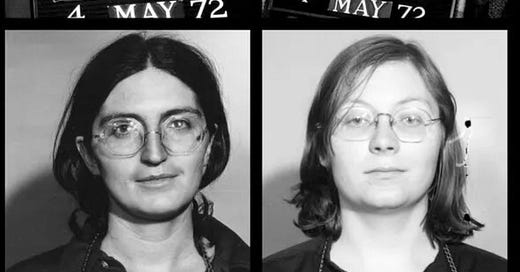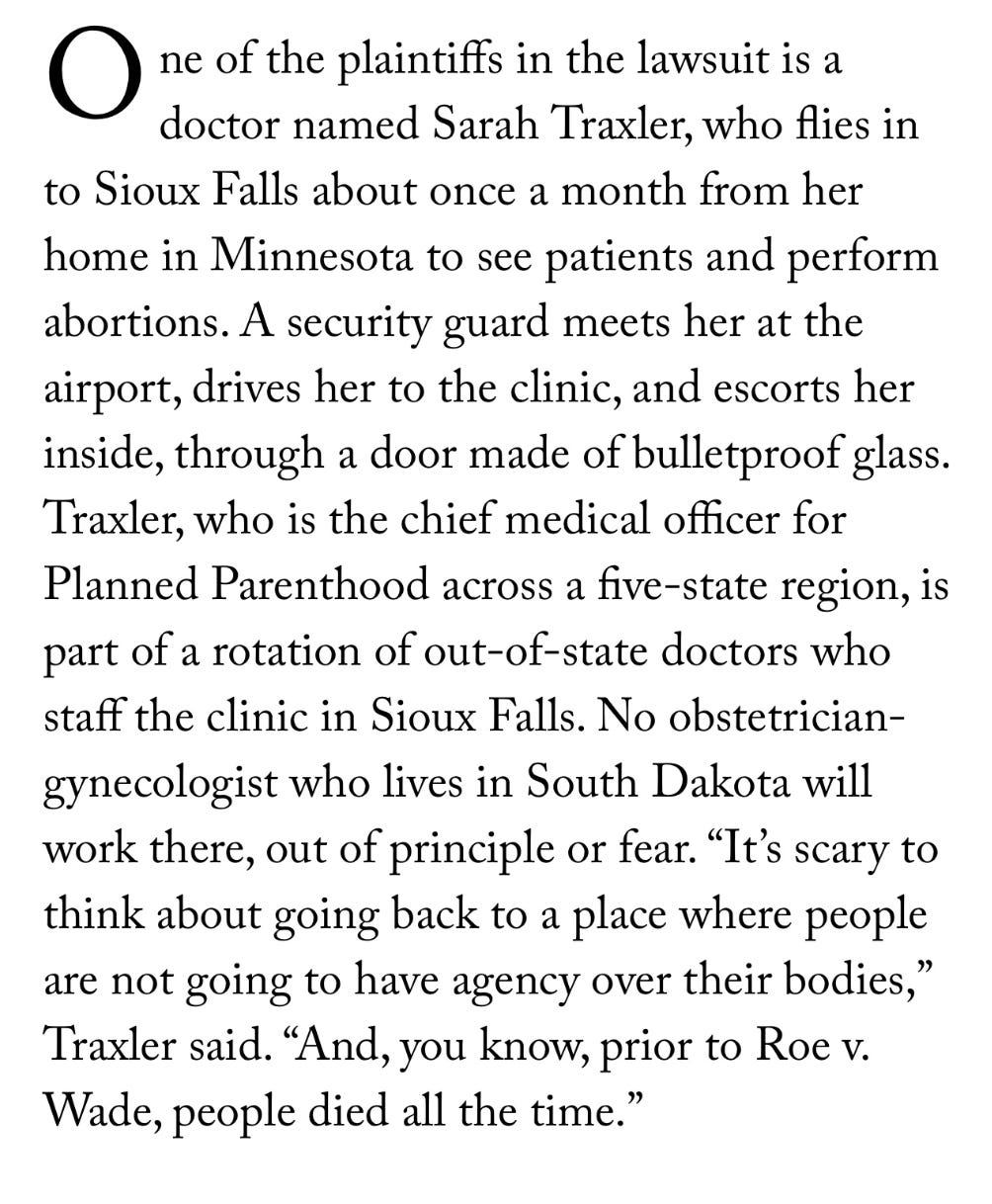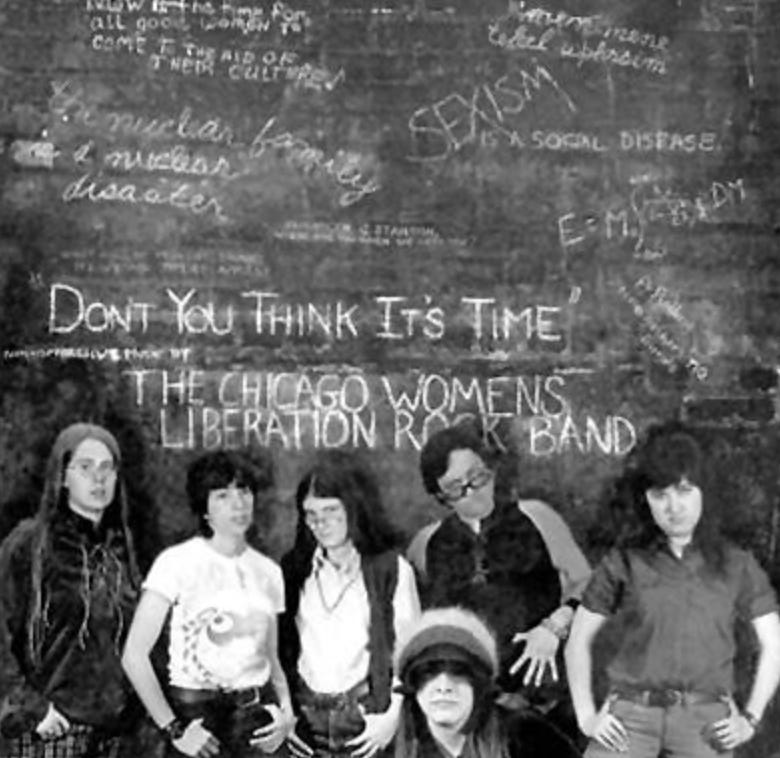History is written by the losers (who keep organizing)
On what happens when it feels like all hope is lost and the real work begins
Note: This week’s newsletter includes stories both about Freedom Summer and the Jane Collective. My knowledge of these stories comes disporportionally from By The Light of Burning Dreams, a terrific book about often misunderstood 1960s social movements by David and Margaret Talbot. I HIGHLY recommend buying a copy.
I’m thinking about abortion right now, but of course I am.
I’m thinking about abortion because it appears that the Supreme Court has already decided to gut Roe vs. Wade. It’s a decision that fills me with rage and fear and sadness as a straight cis guy, not just for individual, me-centering “as the husband of a wife/as the father of a daughter” reasons but because I’m a member of an interconnected society and that means that I’m actually in love all of you.1 That love means that I want to live so badly in a country that cares for every one of you, and that feels impossible when we choose the politics of punishment and prohibition. I’m mad because I love working moms in Atlanta and suburban Phoenix who can’t find or afford childcare. I love families in rural Tennessee who deserve health care but whose local hospital was just closed. I love trans men in Ohio and non-binary teens in Montana who just received one more reminder that their humanity is up for debate and discussion. And I love women in South Dakota, from Pine Ridge to Watertown, the state of my roots, the state whose one-time populist political culture made my parents the people they are today, the state that breaks my heart.
That’s not all I’m thinking about, though. I’m thinking about what organizing looks like at moments like tomorrow— in the quiet, in the shadow of defeat, when the world has turned its attention elsewhere. The fact that I’m thinking about organizing won’t come as a surprise. That topic (by which I mean, “how White people are traditionally organized politically and what it would look like for us to organize in a more loving, holistic way”) is literally what this newsletter is all about. But today’s story in particular is very much an organizing story. We got here because of organizing, and if we find our way out, it’ll be because of organizing as well.
By organizing, I don’t mean flooding the street in front of the Supreme Court for a mass protest. There’s nothing wrong with that. It’s an incredible release of emotion. It will attract media attention and make a lot of people feel much less lonely. I very well may go to a big rally or two myself! But it’s not organizing.
The abortion opponents who have now successfully executed a patient, fifty-year political project occasionally held marches and rallies. But that wasn’t why they won today. It’s because they organized when nobody else took notice. They met in kitchens and church basements, finding each other in a moment when the world assumed they had lost the culture wars. They sponsored film screenings and built their ranks through direct mail and took over the Republican Party at the precinct level, making Pro-life stances the single litmus test by which candidates were judged.
The Left generally looks at the birth of the post-Roe pro-life movement only in cynical terms, pointing out in that smarty pants way of ours that many prominent Evangelical leaders first became involved in electoral politics in the 1970s in order to protect the tax-exempt status of racist, private segregation academics like Bob Jones University. That’s not wrong, but what’s lost in that telling is that, unlike their leaders, the White Evangelical base didn’t rally around the issue of religious school tax exemption. They did, however, rally around the issue of abortion, and they did so effectively and patiently. As Lyz Lenz wrote about today in her truly excellent newsletter, they built and sustained a movement with intense discipline, even when they lost Presidential elections, even when the Supreme Court was stacked against them, even when Roe was declared “settled law.”
My whole life, I knew the plan. Vote for politicians who’d nominate justices who would overturn Roe v. Wade. Abortion was murder. I heard this preached in churches; at Sunday dinners over brisket. I heard the plan at rallies for homeschoolers in D.C., where we’d lobby our senators for more rights for families — or so I was told.
I heard about the plan when, as a teen, I read fundraising fliers for Christian schools that would turn out a whole new generation of lawyers, lawyers with a Godly worldview, who’d overturn Roe v. Wade.
I heard about it again in 2016, when a nice lady from church smiled at me at school drop-off the day after Trump was elected. “I didn’t want to vote for him,” she whispered to me. I was hung over, and sick. “But he will put good judges in place to overturn Roe v. Wade.”
The Left is incredible at experiencing these intense, super-nova hot bursts of anger and emotion and energy and converting them to short-term bursts of action. We are incredible at mobilizing for single-day protests. We are amazing at giving money left and right in the immediate days and weeks when we feel most defeated. But that’s not organizing, that’s not twenty Evangelical women gathering around kitchen tables to lick envelopes in 1977, that’s not spreading the word, from church to church, to vote for Reagan instead of Carter.
That’s the bad news.
The good news, though, is that for those of us who love justice for all, we too walk on the shoulders of organizers, of foreparents who recognized that the real work happens when you’re at your lowest, when the world assumes that you’ve lost.
In 1963, Bob Moses of the Student Nonviolent Coordinating Committee had an organizing idea. He had been trying to register Black Mississippians to vote for two years, in the face of intense violence and vitriol from that state’s White population. By 1963, Black voter registrations still only tallied 6% of Mississippi’s total population. Every single one of those registrations was earned the hard way— with the direct threat of beating and lynching perpetually around the corner. Moses’ idea, which came to be known as Freedom Summer, was to recruit White college students to spend their summers on the front line of registration drives. His thinking was that while the television cameras and presses had proven deeply capable of ignoring the beatings of Black civil rights workers, they wouldn’t keep their lights off if the billy clubs were falling on White Northerners.
In practice, Freedom Summer had a mixed short-term legacy. It was by no means a halcyon season of peace and love. The summer saw the murder of three volunteers and brutal beatings of 80 others. Sixty-five buildings used as organizing headquarters were bombed, including 35 churches. There was real racial tension between some of the White and Black volunteers. And while Black voters in Mississippi did elect their own slate of Democratic delegates, segregationists succeeded in blocking them from being seated at that summer’s national convention.
But here’s what else happened during Freedom Summer. A number of college students who knew nothing about organizing were suddenly on the front lines with the most effective long-haul organizers in our country’s history— especially Black women like Dorie and Joyce Ladner, Fannie Lou Hamer, Ella Baker and Diane Nash. And those activists, in turn, both inspired and shored up with real organizing knowledge, went home and played key roles in that decade’s other most iconic social movements. Mario Savio went back to Berkeley and organized the Free Speech Movement. Tom Hayden coalesced Students for a Democratic Society into a key force in the anti-war movement. Marshall Ganz moved to California and became a key right-hand man to Huerta and Chavez, Casey Hayden helped launch the Women’s Liberation Movement.
One of those White Northern activists who had her life changed by Freedom Summer was Heather Booth, a soft-spoken, thoughtful University of Chicago Sophomore. When Booth reflected on her time in Mississippi she spoke of three key lessons— first, “that if you organize, you can change the world—but only if you organize” secondly, that it is sometimes necessary to resist unjust laws, and finally, that organizing is about listening to what people around you tell you they need in your life. Back in Chicago, what Heather heard— both from her fellow undergrads as well as women in Chicago’s vast, mostly Black South Side, was that there were thousands of women seeking abortions but no safe option.
The cooperative that Booth and a number of other feminist activists formed— the Jane Collective— was raided by Chicago cops 50 years ago today. In the near-decade they existed, however, they provided over 10,000 women with safe, judgment-free healthcare while also helping catalyze and provided inspiration for the feminist movement more broadly. They operated in a moment when “their side” was still officially losing, when there was no promise that a Supreme Court victory would come in and change their political reality. Operating closely with the broader Chicago Women’s Liberation Union, Jane members did organize protests, but also taught and attended a sprawling network of classes on everything from politics to self-defense to home repair. They held parties and social events. They even had a band!
Today is not 1973, when a Supreme Court decision invalidated the charges on which Jane members had been arrested. Nor is it 1977, when the Right to Life movement scored its first major victory, the passage of the Hyde Amendment, just four years after their largest defeat. It is 2022 and one side is ascendant and the other is licking its wounds. For those of us on the former side, today is a particularly hopeless day, so goodness knows that the last thing anybody needs is a lecture from a cis White guy telling you how to feel in the short term. If you’re angry or sad or overwhelmed, that’s totally fine. If it feels good to go to a protest and raise a placard in the short-term, more power to you.
What I will offer, though, is that whatever you do today or this week, I hope that a month from now, six months from now and a year from now you’re actively building something. Perhaps you’re volunteering with a local abortion fund. Perhaps your neighborhood mutual aid society starts hosting pie sales or dance party so that you can donate even more to one of those funds. Perhaps you’re running a progressive campaign in the kind of rural areas that Democrats left for dead long ago. Perhaps you’re engaged in regular acts of civil disobedience. Perhaps you’re becoming obsessed about hyper-local elections that matter— local district attorneys, your ward’s election captain, etc.
I hope you do all those things, both because that work matters but also because doing so is how we sustain one another. It’s how we build. It’s how we learn from each other cross-generationally. It’s how movements beyond our wildest imagination take root, grow and cross-polinate.
Don’t take my word for it, though; here’s what Heather Booth herself has to say about what we need to do right now (this interview took place after Texas’ recent vigilante law went into effect).
I think many things are needed. Jane was a service. And it was a service that ended up being most important for people who couldn’t travel out of state or internationally to obtain abortions. We do need to expand services. But what we really need to do is build the political power to stop these abusive laws. And that will take organizing, building political and electoral power. It will take legal support. It will take visibility and cultural action. It will take people speaking out, broader education, informing people more about what their options are. And also it means providing people information about contraceptives, medically accurate information about birth control and reproduction. And support for women having full participation in society.
You can do whatever you want today. The question is, what will you be doing when nobody is looking.
This week’s song: “Mountain Moving Day” by the Chicago Women’s Liberation Union Rock Band
Yes, including those of you who don’t see eye-to-eye with me on this issue. Thanks for still reading and know that my inbox is always open.








Thank you, Garrett, for giving me some hope today...and some tools for the journey. So grateful for you, your work, and the love you bring to the fight.
"What will you be doing when nobody is looking." 🧡